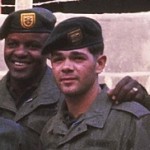“I feel like I’m all by myself, isolated with nobody to talk to. I never talk to my family or civilian friends about my experiences.They don’t understand and never will, so I just avoid the subject.”
Gordon Cucullu, Lt Col (Ret.), says he hears this repeatedly from contemporary vets. So often that he says it’s become a mantra. He wonders why this is such a universal phenomenon?
So, we give over WoW, our Words on Wednesdays today to the wisdom of the ‘old vet’ resident at the Valhalla Project. Valhalla is a place where warriors seeking respite, are enjoined to work with their hands in nature. There they find clean air and easier talk of their troubles and their triumphs, with others who understand, even if in just the sounds of side by side work in the wild.
This is absolutely normal and understandable – I certainly felt this way myself after leaving the military after two decades. Yet few civilians understand since they have lived under very different circumstances.
Nobody, including cadre or board members, draws a paycheck and 100% of donations go directly to program expenses.
Donations in kind are accepted, if you kinda feel like springing instead for a specific like: new tractor tires, a truckload of straw bales, a pallet of dimension lumber, or even a few dozen 10′ sheets of forest green tin roofing, that would be absolutely wonderful
SOLDIERING ON
Quite a few people assist from afar with fundraising, donating items from our critical needs list, and generally spreading the word about what Valhalla Project is all about. The founders express their appreciation for the good will and generosity.


Speak Your Mind